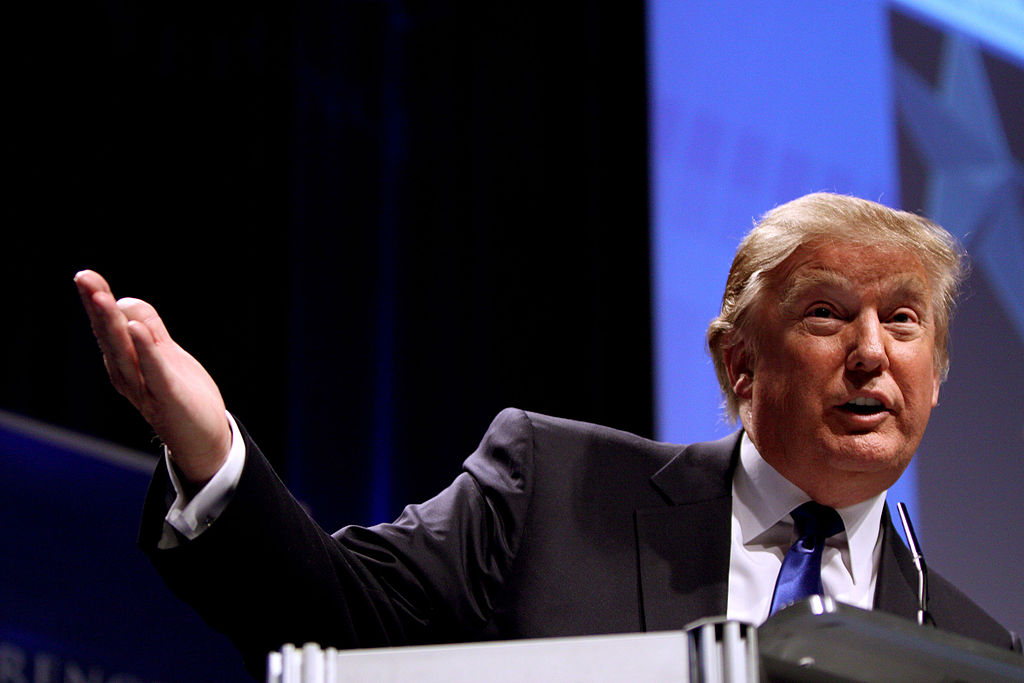

President Donald Trump is not going to leave the White House quietly, after he threatened to veto a major bill for the US Defence sector, because of protections for tech firms.
Trump warned that he veto the National Defense Authorization Act, unless the US Congress (controlled by the Democrats), removes the Federal law known as Section 230, that protects social networking firms such as Facebook and Twitter, against liability over content posted by users.
The National Defense Authorization Act is a crucial piece of annual legislation in the United States, that covers authorisation for pay raises and other spending needs for America’s military.
President Trump on Tuesday tweeted his veto warning against Section 230 in a couple of tweets on Tuesday.
“Section 230, which is a liability shielding gift from the US to “Big Tech” (the only companies in America that have it – corporate welfare!), is a serious threat to our National Security & Election Integrity. Our Country can never be safe & secure if we allow it to stand…” he tweeted.
“….Therefore, if the very dangerous & unfair Section 230 is not completely terminated as part of the National Defense Authorization Act (NDAA), I will be forced to unequivocally VETO the Bill when sent to the very beautiful Resolute desk” he added in a follow up tweet. “Take back America NOW. Thank you!”
It should be noted that this is not the first time that President Trump has threatened to veto the NDAA, as he confronts social networking giants over what he and some Republicans believe is a bias against conservative political views.
In July President Trump warned he would veto the NDAA because it included language renaming US military installations honouring Confederate generals.
It should be noted that the Section 230 legislation was defended by Twitter CEO Jack Dorsey, Facebook CEO Mark Zuckerberg, and Alphabet/Google CEO Sundar Pichai when they appeared before a US Senate panel in October.
The US Senate Commerce Committee had subpoenaed tech CEOs about reforms of Section 230 of the 1996 Communications Decency Act, which offers tech companies protection from liability over content posted by users.
Essentially it stops tech firms from being liable for the content and opinions expressed online by its users.
Maters came to head earlier this year when President Trump publicly clashed with Twitter, after it began applying a fact-checking warning to the President’s tweets for the first time, as part of its new policy on misleading information.
When Twitter refused to back down, President Trump signed an executive order against social networking firms.
Trump sought to “remove or change” section 230 that shields social media companies from liability for content posted by their users.
Section 230 protections have been criticised in the past by other lawmakers on both sides of the pond, who feel that it gives social networking firms a free pass on things like hate speech and content that supports terrorism.
The Justice Department still formulating proposed changes to the legislation.
The Internet Association, which includes Facebook, Amazon, Alphabet Google and Twitter, hit out at President Trump’s veto threat.
“Repealing Section 230 is itself a threat to national security,” said Internet Association Interim President and CEO Jon Berroya. “The law empowers online platforms to remove harmful and dangerous content, including terrorist content and misinformation.”
“Section 230 also underpins countless ecommerce websites, apps, and services that are helping small businesses across the country keep the lights on during a pandemic,” he added.
Bitcoin sees biggest weekly decline since collapse of FTX in 2022 as optimism evaporates and…
Foxconn begins construction of massive headquarters in China for new businesses as it aims to…
OpenAI launches GPT-4.5 AI model with new training techniques including feedback from humans, as it…
Alibaba develops open source RISC-V-based chip for high-performance computing as it plans massive AI, cloud…
Tencent says Hunyuan Turbo S delivers high-speed responses, by contrast to DeepSeek's R1 that needs…
Chinese AI start-up DeepSeek releases series of open source projects revealing details of AI model…